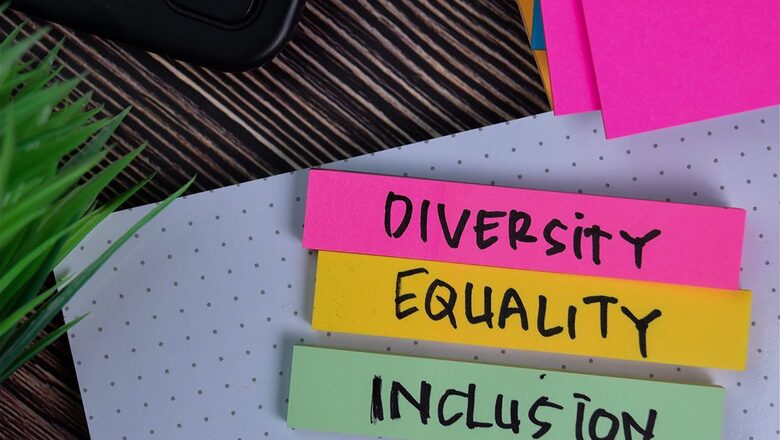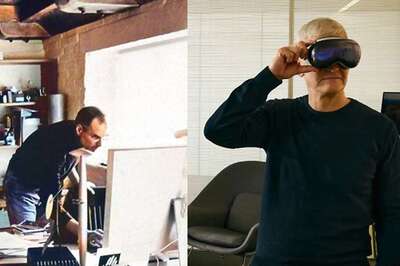Addressing the Hygiene Gap: Ensuring Sanitary Conditions in Inclusive Toilets for LGBTQ+ Individuals

views
In recent years, discussions surrounding inclusivity and equal rights have gained momentum worldwide. Among the many facets of this discourse, providing accessible and sanitary facilities for LGBTQ+ individuals is of paramount importance. One such crucial amenity is inclusive toilets.
Before we delve into the specifics of hygiene, let’s take a step back and understand the need for inclusive toilets in the first place. Just for a moment, join us in a thought experiment.
Let’s assume you’re a cisgender man. You’re at an event, and you’ve really got to go to the toilet. You reach the toilets, but… there are no men’s toilets! Just toilets for women. What do you do? Let’s assume that you choose to quickly run in, do your business, and get out before anyone notices. While you’re in one of the stalls, a group of women walk in, and are now queueing up outside your stall. You delay as long as you can, and then, sheepishly, step out. The women all glare at you. Some even call you out on your behaviour. You apologise continuously as you wash your hands, hoping that everyone remains reasonable, and get out of there as quickly as you can… just as one of the women threatens to call security.
Should going to the bathroom involve this much stress? No, of course not. But it does for this transgender, intersex and non-binary community. Gendered toilets come from a binary understanding of gender. We know better now.
Inclusive toilets, also known as gender-neutral or all-gender toilets, play an essential role in fostering equality and dignity. They provide a safe space for transgender, non-binary, and gender non-conforming individuals, who might otherwise face harassment or discrimination in gender-segregated facilities. For these community members, the availability of inclusive toilets is not just about convenience, but also about affirming their identity and ensuring their safety.
A dirty toilet is an unusable toilet
Inclusive toilets are for everyone – they don’t discriminate. We can all use them. Which means they are a collective responsibility to keep clean. However, inclusive toilets in India inherit the same problems that gendered toilets suffer from. The chief amongst these, is our mindset gap.
While access to toilets has greatly improved in India, the accompanying change in behaviour is yet to take root. Public toilets, be they at your local cinema, on flights or even the local Sulabh Sauchalaya, are considered to be *someone else’s responsibility*, and therefore become no one’s responsibility. The state of our public toilets reflect how we, as a society, feel about sanitation overall.
Building a culture of hygiene through education and awareness
Behaviour change is the second half of the problem of sanitation. This is where education and awareness play an outsized role. According to a report of the Sub-Group of Chief Ministers on Swachh Bharat Abhiyaan, behavioural change is an area of continued focus. The Behaviour Change Communication (BCC) strategy includes measures like:
- Involving political and social/thought leaders, celebrities and media houses to spread the message of the importance of cleanliness and sanitation.
- Extensive media campaigns in the form of electronic, web and print to be used for conveying messages and encouraging the people to pay for usage of public toilets for their sustainability.
- Advocacy of the concept of three R’s: Reduce, Reuse and Recycle.
- Communications to ensure that cleaning occupations must be seen as dignified work and widely respected.
The Sub-Group of Chief Ministers also came up with an education strategy that encompasses several key measures:
- Inculcating sanitation practices in children by including a chapter in the school curriculum from the first standard itself.
- In each school and college, a team of students may be formed which will be called the ‘Swachhata Senani’, to spread awareness about sanitation and cleanliness
- Skill Development courses/ Diploma courses may be introduced in State ITIs and polytechnics/ colleges to train personnel in the field of solid and liquid waste management.
- Specialised courses on Environmental Sciences, Public Health Engineering and Municipal Engineering with focus on sanitation and waste management may be introduced at undergraduate and postgraduate level.
- Joint Research Programmes with foreign universities/higher educational institutions would enhance knowledge and capacities to work on waste management technologies.
We were also extremely fortunate that in India, brands also took up the mantle of sanitation communication. Brands like Harpic, which is a leader in the lavatory care segment, have built strong communication strategies around the need for good toilet hygiene habits in particular, and sanitation overall. Harpic decided to take the lead in the sanitation and hygiene movement by creating innovative, thought provoking campaigns and outreach programs. They partnered with Sesame Workshop India, an educational non-profit working for the early developmental needs of young children, to promote positive sanitation, hygiene knowledge and behaviours among children and families through schools and communities, engaging with 17.5 million children across India. This, in addition to the messaging they already aimed at adults.
Harpic, in addition to creating programming aimed at young children, also pioneered a programme to raise awareness and reinforce healthy toilet and bathroom habits among young children, developing and recognising them as “Swachhta Champions”. These initiatives are a part of the larger umbrella campaign, Harpic Mission Swachhta and Paani, with News18.
Mission Swachhta aur Paani is a movement that upholds the cause of inclusive sanitation where everyone has access to clean toilets. It advocates equality for all genders, abilities, castes and classes and strongly believes that clean toilets are a shared responsibility. As a part of this campaign, they organised workshops in several schools to discuss good sanitation practices, and the numerous ways in which these simple practices could add (healthy!) years to their own lives and those of their families. These were named Swachhta ki Paathshala and engaged celebrities to help amplify key messages.
Creating a hygiene ecosystem
Culturally, we still see sanitation work as ‘dirty work’ and this labelling unfortunately extends to sanitation workers. As a society, we need more sanitation workers. But can we attract people to a profession that has so few rewards and so much discrimination?
At the 2019 Kumbh Mela at Prayagraj, in an unprecedented gesture, PM Narendra Modi washed the feet of five sanitation workers, hailing them as Karma Yogis and expressing his gratitude for their service. This symbolic act sent a powerful message to the entire nation that sanitation workers are an essential part of society and their work needs to be recognized and respected.
Three years before this extraordinary gesture, Harpic took a different approach to the problem via the creation of Harpic World Toilet Colleges. First established in 2016, these Toilet Colleges work towards improving the quality of life of manual scavengers through their rehabilitation by linking them with dignified livelihood options. The college operates as a knowledge sharing platform with an aim to uplift the lives of the sanitation workers by educating them about their rights, health hazards, use of technology and alternate livelihood skills.
Workers trained by the college are provided placement with various organisations. Following the successful proof of concept in Rishikesh, World Toilet Colleges have opened in Maharashtra, Aurangabad, in partnership with Harpic, Jagran Pehel and Maharashtra Government. As Dr Surabhi Singh observed at a recent Mission Swachhta aur Paani event, Harpic’s creation of World Toilet Colleges uplifts the entire profession – no longer is it seen as unskilled, dirty work. It is now seen as a profession that requires specific skills and training; and sanitation workers are seen as trained, skilled professionals performing essential services.
Clean, inclusive toilets help everyone
Human beings come in many genders, not just male and female. As we continue to recognise, reinforce and embrace that truth, we will continue to shift our society towards a more egalitarian one, where respect, acceptance and safety for all is a given. Inclusive toilets are a small, but significant part of that movement.
Mission Swachhta aur Paani, a remarkable collaboration between Harpic and News18, recognizes the profound significance of toilets, viewing them not merely as functional spaces but as beacons of safety and acceptance for the marginalised. This exceptional mission is built upon the firm belief that clean and inclusive toilets are vital for fostering a society that embraces and empowers us all, unconditionally. With unwavering dedication, Harpic and News18 actively include and advocate for the LGBTQ+ community, propelling the message that every individual deserves access to safe and accepting spaces, where their dignity is upheld, and their presence is celebrated.
Seen from that lens, LGBTQ+ rights are our rights. They are the rights we want for our friends, our families, our colleagues and everyone else: the right to exist, the right to be seen, the right to be accepted and the right to be safe. Who wouldn’t want that? Who wouldn’t we want that for?
To know more about how you can play a part in this national conversation, join us here.


















Comments
0 comment